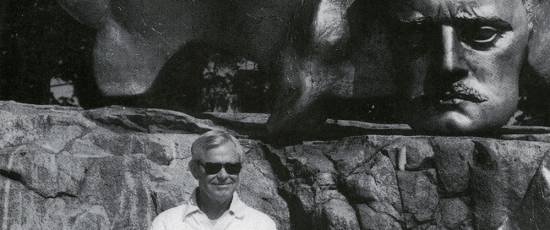A Toast to Clare Petty
2013-01-02 03:55:00

"It was not a clear cut case." Clare Edward Petty would emphasize that sentence repeatedly during his interviews with author David Martin; he wanted to establish his doubts for the written record. It was the bloody end of the 1970's and Martin was gathering material for his book, Wilderness of Mirrors, a critical assessment of James Jesus Angleton. Petty's legacy today is basically a single paragraph twist in Angleton's obituary, an ambiguous note too sweet for any author to resist recounting. Yet Petty's story took decades to unfold, and represents the life of a remarkable man who could easily be a patron saint for the parapolitical research caste.
So consider the career arc of Clare Petty, a compulsively thorough counterintelligence analyst held in great regard by Langley's leadership class. He was recruited by Angleton for a mission critical project: a fresh investigation into the entire Central Intelligence Agency, especially the Soviet desk, to locate KGB moles. He was groomed to be a front line vanguard against infiltration and deception.
Instead, he found himself indulging the literary imagination of his boss, at one point trying to crack a Canadian KGB spy ring that relied upon carrier pigeons. After destroying a few lives and wasting many thousands of pre-Nixon dollars, he concluded that no such plot existed. He would continue to harbor that same suspicion about many of the missions he executed at SIG. Petty would spend the last two years of his CIA employment covertly building a case to implicate Angleton himself as the primary KGB mole.
It should not go unremarked that Clare Petty made his case and resigned from the CIA in 1974, the same year that John Le Carre published Tinker, Tailor, Soldier, Spy, a novel advancing the premise that British intelligence had been similarly compromised on the highest level for much of the cold war. If Petty has ever been asked about this fictional synchronicity, the results remain unpublished. Strange resonance aside, his report was instrumental in giving William Colby the leverage to get Angleton out of power and radically remake the Agency.
Speaking to David Martin several baffling years later, Petty claimed that his brief was based on 25 points of evidence and he spent a week being interviewed on tape about his research. (It could also be remarked that David Blee was in the room for much of this testimony. David should not be confused with his equally ubiquitous son, Richard Blee, who figures prominently in the history of the CIA's later relationship with Bin Laden.)
Despite Petty's doubts, all of his 25 points were discarded almost immediately as a rationale to end Mother's reign. James Angleton has been cleared, at least in terms of history and the CIA's public documentation, of being the most audaciously successful KGB agent known to man. Although Petty's actions are usually described today as a cautionary tale about paranoia, I consider him to be an inspirational character, an admirably pure product of his training.
"To this day, there are people who don't want to hear Ed Petty's name." - Mary Ellen Reese